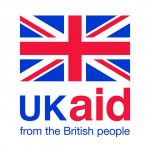The GSMA Mobile for Humanitarian Innovation Fund supports a portfolio of 13 projects globally, each leveraging mobile technology to positively accelerate the digitisation of humanitarian assistance.
Lumkani was one of the first projects to receive funding in Round 1, via the GSMA’s Disaster Response Innovation Fund. The Lumkani team seeks to address the challenge of fires in urban informal settlements and townships in South Africa and across the globe. The challenge is a big one; over the past decade, an estimated 250,000+ South African residents have been displaced from their homes through fire outbreaks. These events are especially devastating during the dry and winter seasons experienced in the country.
Lumkani have rolled out IoT heat detection devices which mitigate fire risk inside homes and neighbourhoods in South Africa’s most vulnerable settlements through a networked alarm. The fire devices give autonomous, real-time monitoring and two-way SMS alerts to residents allowing the verification of fire events instantly.
Since 2017, and thanks to the GSMA/DFID grant, more than 20,182 additional homes in informal settlements across South Africa have been fitted with Lumkani devices (at zero cost to residents). Thanks to partnerships with NGO Islamic Relief South Africa, and insurance firm Hollard, residents are able to opt-in to a micro-insurance scheme which will insure their homes against damage or loss to fire. Early findings have shown this to be a critical lifeline to those impacted by fire outbreaks.
Project facts and figures
- In 87 per cent of cases, customers from the community said the Lumkani system helped to limit the spread of fire. And in 100 per cent of fire claim cases, residents received a stipend (small compensation) in 24 hours plus compensation within 10 days of the fire.
- Lumkani installed 20,182 free fire detection devices in homes where more than 1000 clients signed up to insurance. If we consider household data of people who have the device that’s roughly 66,000 people with access to resilience-building services.
- Lumkani presented at four International GSMA events (MWC, MWC Shanghai, Mobile 360 and Round 1 Workshop), winning a GLOMO award for Best Mobile Innovation supporting Emergency or Humanitarian Situations. Two grant visits plus more than 24 conference calls and meetings were conducted between the GSMA M4H Innovation Fund team, Lumkani and other experts or stakeholders. These activities were each designed to provide support and to identify and leverage potential opportunities.
Lesson 1: building community trust through mobile
Mobile technology has been able to accelerate levels of trust between a community and Lumkani. When serving markets that few other companies are well-positioned to enter, the team found building brand trust first was critical. To highlight some examples:
- Recording and storing: insurance agents could easily show customers that they had a clear record of all the monthly payments made to-date through the Lumkani app. In an environment where the social fabric of the community is almost entirely based on trust, this level of transparency in payments helped users see that a full record is being kept and that they are not overpaying.
- Referral system: customers get one month free insurance if they sign up other customers and this has been shown to encourage brand trust as well as being a cost-effective outreach and marketing strategy for the team. This is particularly the case in community economies in which social networks are a key source of information.
- Push to pay: clients can push a button on the fire device button and an insurance representative will come to the house within the next day to collect payment. In less safe areas this ensures customers do not shoulder the burden of travelling to pay agents. Mobile-enabled payment methods are being explored in partnership with payment providers.
Lesson 2: produce locally to start
The ability to find local, capable manufacturing partners was critical in integrating a fit for purpose product. Through Lumkani’s local manufacturing partners, the hardware team were able to make small and regular product iterations almost on a daily basis.
This proved essential for when they received community feedback in the early stages. As is often the case with any innovative product life-cycle, feedback from the field needs to be quickly integrated, deployed and re-tested in a matter of days. Having local manufacturing partners greatly decreases the time needed for this feedback loop to happen.
Lesson 3: solve data collection in remote locations
In assessing all the alternative ways of collecting data from remote locations, the Lumkani engineering team decided that GSM was the ideal form of IoT backhaul. By not having to maintain their own network infrastructure, or rely on underdeveloped public LPWA networks, Lumkani were able to focus on the application, rather than coverage or networking.
The team also learnt the importance of being able to ‘roam’ across various mobile network operators. This helped mitigate the risk of unreliability and data loss in under-served communities. The team found these risks could be avoided by designing solutions that allow for multi-operator access.
This highlights the importance for innovators for deciding exactly where they want to focus their energy and resources, and where they can leverage existing or partner services and networks.
Next for Lumkani
Building on the insights gained from the GSMA project, Lumkani plan to develop a suite of low-cost sensor technologies that would decrease the risk of fire as well as other risks such as flood or theft, and in turn create access to financial services which serve as a critical safety net. In addition, they will continue to work with the GSMA to pursue opportunities to roll out in numerous humanitarian contexts such as in Kenya, Iraq and Bangladesh.
This blog was co-authored by Paul Mesarcik. Please reach out to Rosie Afia ([email protected]) or Francois Petousis ([email protected]) find out more.



